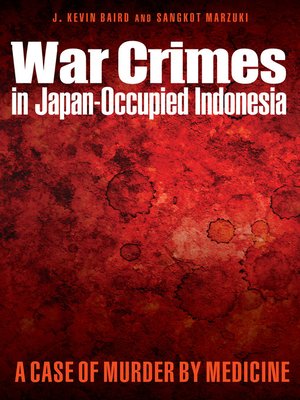
Sign up to save your library
With an OverDrive account, you can save your favorite libraries for at-a-glance information about availability. Find out more about OverDrive accounts.
Find this title in Libby, the library reading app by OverDrive.



Search for a digital library with this title
Title found at these libraries:
| Loading... |
Shortly after Pearl Harbor, the Japanese Imperial Army invaded the Dutch East Indies, now known as Indonesia. A deceitful campaign promoting Asian brotherhood recruited and coerced young Indonesian men to support the Japanese occupation with the sinister outcome that several million of them were worked to death or summarily killed as expendable slave laborers, or romusha, as they were called.
While many romusha disappeared from the record, nine hundred were known victims of a brutal and immoral medical experiment perpetuated by an increasingly desperate Imperial Japan. In anticipation of a land assault, the Japanese needed a means to protect their troops from tetanus, and they used these nine hundred men as human guinea pigs to test an insufficiently vetted vaccine. Within days, all nine hundred suffered the protracted, agonizing death of acute tetanus.
With the Allied forces poised for victory, the Japanese needed a scapegoat for this well-documented incident if they were to avoid war-crimes prosecution. They brutally tortured Achmad Mochtar, a native Indonesian and renowned scientist, along with his colleagues at the Eijkman Institute in Batavia (now Jakarta), until Mochtar signed a confession to the murders in exchange for the liberty of his fellow scientists. The Japanese beheaded Mochtar weeks before the war ended. War Crimes in Japan-Occupied Indonesia unravels the deceit of the Japanese Army, the reasons for the mass murder of the romusha, and Mochtar's heroic role in these tragic events. The end result finds justice for Mochtar and reveals the true extent of one of the least recognized war crimes of World War II.






